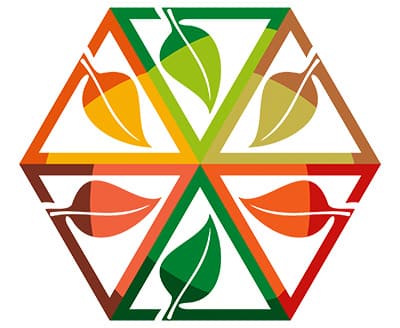International Overview on the Protection of Plant Varieties
“Trees and plants always look like the people they live with”- Zora Neale Hurston
 Protection of plant variety is vital for the development of a nation since it provides for sustainability and the growth of the region. The effective and efficient system for plant protection leads to economic development and promotes the growth of the agricultural industry. However, protection of plant varieties is not an easy task, since it involves a wide range of elements and is an activity based on knowledge. Plant breeding has been rising owing to the advancement of production methods.
Protection of plant variety is vital for the development of a nation since it provides for sustainability and the growth of the region. The effective and efficient system for plant protection leads to economic development and promotes the growth of the agricultural industry. However, protection of plant varieties is not an easy task, since it involves a wide range of elements and is an activity based on knowledge. Plant breeding has been rising owing to the advancement of production methods.
The development in the agro-sector calls for an efficient legal system to maintain and regulate the activities concerning plant protection.
This article lays down an International overview on the protection of plant variety, with particular emphasis on the law relating to plant protection in the UAE.
Meaning
Plant variety may be defined as a group of plants that are of common origin but differs with respect to its inherent characteristics. Plant varieties are formed through refinement methods, and it may be done, either with genetic engineering or traditional methods. The variety obtained should be distinguished from its original plant to be termed as a variant variety. The plant variety is protected within the sphere of Intellectual property rights.
Article 1 of the International Convention for the Protection of New Varieties of Plants, 1961 defines the term variety as the following:
“ variety means a plant grouping within a single botanical taxon of the lowest known rank, which grouping, irrespective of whether the conditions for the grant of a breeder's right are fully met, can be
- defined by the expression of the characteristics resulting from a given genotype or combination of genotypes,
- distinguished from any other plant grouping by the expression of at least one of the said characteristics and
- considered as a unit with regard to its suitability for being propagated unchanged; ”
Therefore, under the concept of Intellectual property, a plant variety is well protected, and the plant breeder is granted with numerous exclusive rights.
Need for protection
The reason behind the protection of a plant variety is that new plant varieties result in higher yield and better quality, thereby increasing the productivity of the agricultural industry. Production of a new variety is a long process, and it involves various complex steps. Once a new plant variety is created, it may be replicated by any person, therefore to prevent unauthorized use of a new variety, the breeder of a variety should be protected. The progress in the agricultural sector in different parts of the world is due to the advancement in plant breeding and plant protection.
International Scenario
Various International conventions provide for the establishment of an effective system for the protection of plant variety.
The Paris Convention for the Protection of Industrial Property 1883 was the first International convention regarding Intellectual property, and most of the countries have ratified the agreement. The agricultural sector is also well covered by the convention.
Article 1 (3) of the convention deals with the scope of the Industrial property as provided in the convention:
“(3) Industrial property shall be understood in the broadest sense and shall apply not only to industry and commerce proper, but likewise to agricultural and extractive industries and to all manufactured or natural products, for example, wines, grain, tobacco leaf, fruit, cattle, minerals, mineral waters, beer, flowers, and flour.”
Under the TRIPS Agreement, Article 27 (3) (b) provides for the protection of plant variety,
“3. Members may also exclude from patentability:
(b) Plants and animals other than micro-organisms, and essentially biological processes for the production of plants or animals other than non-biological and microbiological processes. However, Members shall provide for the protection of plant varieties either by patents or by an effective sui generis system or by any combination thereof.”
Therefore, from the above, it is clear that the member countries of the WTO have to provide for an effective mechanism for the protection of plant variety either under their patent regulations or by a sui generis system.
A sui generis system is a system, in which protection is granted in its own kind. Therefore as opposed to granting protection through a central set of law, a separate enactment may be adopted for protection.
The International Union for the Protection of New Varieties of Plants (UPOV) was adopted in Paris in 1961 for the protection of plant varieties through an intellectual property right. The objective of UPOV is to promote the development of plant varieties, for the betterment of the society.
Under the convention, for the grant of plant breeders’ rights, the variety has to be met with the following conditions:
- Novelty(Article 6)
- Distinctness(Article 7)
- Uniformity(Article 8)
- Stability(Article 9)
However, the convention does not grant protection to the breeder for following:
- Private acts, done by the breeder.
- Where the breeding is for experimental purpose
- Breeding of other varieties
The Convention also provides for other important aspects governing plant protection and breeder’s rights. The member nations of the UPOV are also entitled to national treatment (Article 4).
Protection of Plant Varieties in the UAE
 The UAE, being a member of the WTO, the Trade-Related Aspects of Intellectual Property Rights (TRIPS) Agreement was ratified by the country in 1994. Accordingly, the UAE has protected the plant varieties via the sui generis system. The Director of Health and Agricultural Development is the registrar of the protection of plant variety and breeders’ rights.
The UAE, being a member of the WTO, the Trade-Related Aspects of Intellectual Property Rights (TRIPS) Agreement was ratified by the country in 1994. Accordingly, the UAE has protected the plant varieties via the sui generis system. The Director of Health and Agricultural Development is the registrar of the protection of plant variety and breeders’ rights.
The Federal Law Number 17 of 2009 deals with the protection of new plant species
Under the Federal Law Number 17 of 2009, the following definitions are provided for the term ‘species' and ‘plant breeder.'
Species:
“A group of plants belonging to a Species, that is distinct from other in terms of its external characteristics, physiological, biochemical, genetic or any other characteristic which has an agricultural significance (or whose characteristics manifest upon propagation or reproduction). It excludes wild Species which did not undergo any development.”
Plant Breeder:
“A natural person or legal entity that breeds, or discovers and develops a new plant Species, or its legal successor.”
Under Article 2 of the Federal Law, Number 17 of 2009, the objective of the enactment is for the regulation of rights and obligations that arise from the development of new plant species.
Article 3 of the law provides for the establishment of a register for the protection of plant species and rights of the plant breeder.
The conditions for granting plant breeders' rights are provided under Article 5 of the Federal Law Number 17 of 2009; accordingly, the following conditions are to be fulfilled for the grant of plant breeders' rights:
- The plant species must be new
- The species must be distinctive
- The species must be uniform
- The species must be fixed
- The species must not be harmful to health or environment
- The species must not be opposed to Islamic law
The explanations to the conditions are provided under Article 6, 7, 8 and 9 of the Federal Law Number 17 of 2009.
Article 6 deals with New Species:
"A plant Species is considered new if the Propagation and Reproduction Material harvested was not previously offered for sale, sold or assigned to others in any way by a Plant Breeder or after the consent thereof, with a view to its commercial exploitation prior to making the application."
Article 7 deals with distinctiveness:
"A plant Species is to be considered distinct if it is clearly distinguishable from any other Species that is known publicly at the date of filing the application, whether inside or outside the State."
Article 8 explains uniformity:
“A plant Species is considered uniform if its basic characteristics are uniform, taking into account what might be expected as a result of the variation in characteristics due to sexual or vegetative reproduction.”
Article 9 deals with fixed species:
The plant Species is considered constant if the basic genetic characteristics do not change after successive reproductions or breeding, or at the end of each cycle, especially for propagation or breeding.
Persons Entitled to Protection:
According to Article 10 of the Law, the following persons are entitled to register the species:
- The person to whom the rights devolve or the plant breeder.
- The persons involved in the development of the species in the case of a joint effort, provided they agree to such term.
- In the case of two separate applicants, the early applicant will get priority over the latter.
- The employer, in the case of a contract for employment.
The Scope of the plant breeders’ right is provided under Article 15 of the Federal Law Number 17 of 2009, and it reads as the following:
“Subject to the provisions of Articles (16) and (17) of this Law, it is a pre-requisite to obtaining authorization from the Right Holder when planning to do any of the following acts:
- - Production, propagation, or reproduction.
- - Preparation for the purposes of propagation or reproduction.
- - Offering for sale.
- - Sale or other acts of marketing.
- - Exportation.
- - Importation.
- - Storage for any of the purposes referred to in the items set forth in this Article, of the propagation or reproduction Material of the relevant Species or the Material harvested including plants, which was obtained through the unauthorized use.”
Term of Protection
Protection is granted for twenty years in the case of agricultural products, and twenty-five years for vines and trees (Article 19).
Conclusion
 The United Arab Emirates has taken adequate steps to conserve and protect its plant species. Though UAE is not a member of the International Convention for the Protection of New Varieties of Plants (UPOV), effectual measures have been adopted by the country. The sui generis system approved by the UAE with the enactment of Federal Law Number 17 of 2009, provides for preserving and protecting the plant varieties as well as the rights’ of the breeders of such varieties.
The United Arab Emirates has taken adequate steps to conserve and protect its plant species. Though UAE is not a member of the International Convention for the Protection of New Varieties of Plants (UPOV), effectual measures have been adopted by the country. The sui generis system approved by the UAE with the enactment of Federal Law Number 17 of 2009, provides for preserving and protecting the plant varieties as well as the rights’ of the breeders of such varieties.
 English
English
 عربي
عربي Русский
Русский 官话
官话 português
português
 Türk
Türk 







